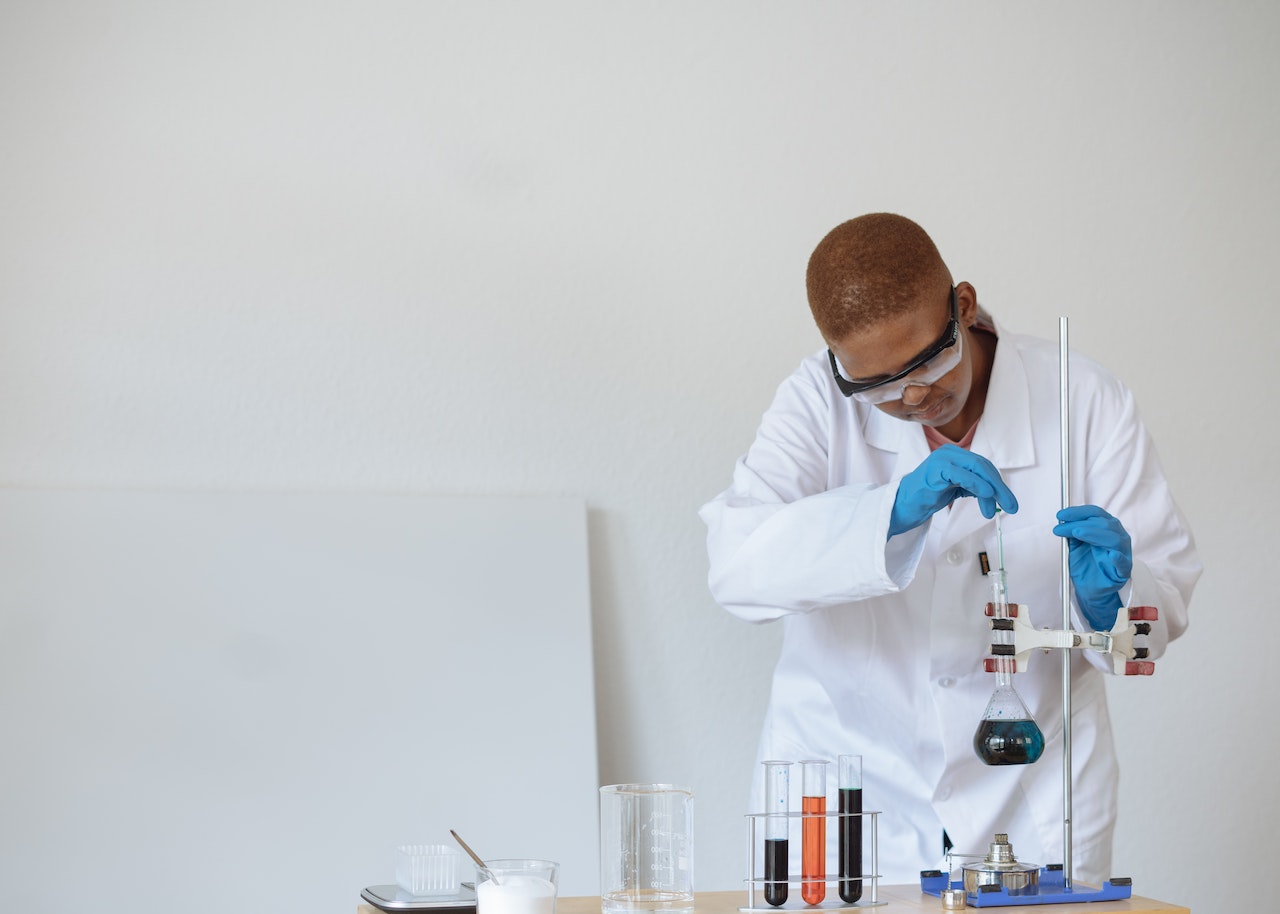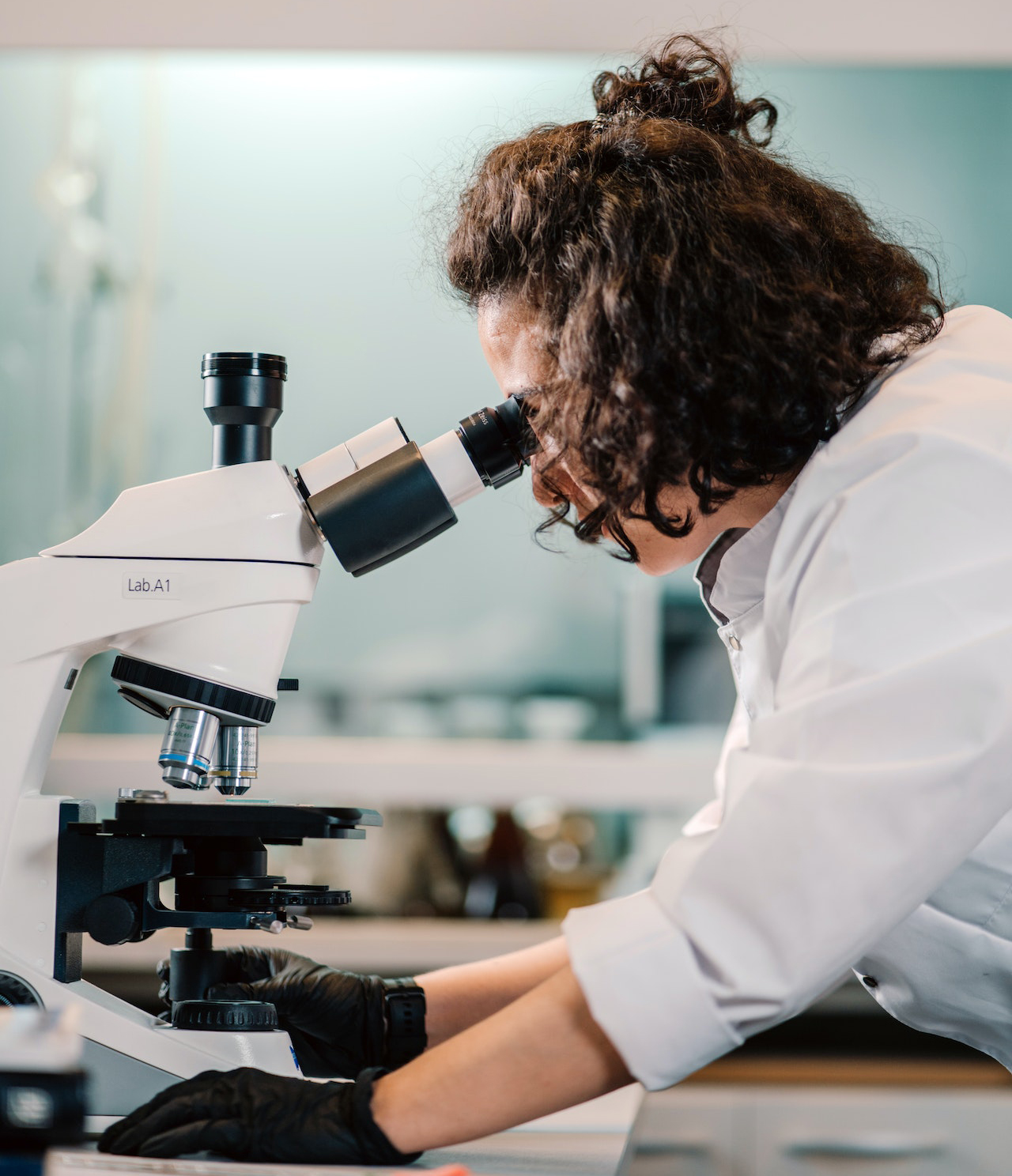B.S. Chemistry Program Map

ACS Certified Track
The B.S. in Chemistry degree offers greater concentration in chemistry than the B.A. degree option and is recommended for those students planning careers in chemical industry or engineering or for those who plan to pursue graduate study.
Stats
60
Core Credit Hours
42
Major Credit Hours
18
Elective Credit Hours
- Plan Your Degree
- Crush Your Course
- Find Your Place
- Broaden Your Perspectives
- Connect Off-Campus
- Take Care of Yourself
- Pave Your Path
Plan Your Degree
Disclaimer: This program map is intended ONLY as a guide for students to plan their course of study. It does NOT replace any information in the Undergraduate Catalog, which is the official guide for completing degree requirements.
| Course Name | Credit Hours |
|---|---|
|
C1: ENGL 1101
English Composition I |
3 |
|
M: MATH 1113
Precalculus |
4 |
|
I2: XIDS 2002
First-Year Seminar |
2 |
|
F: CHEM 1211 + Lab
Principles of Chemistry I |
4 |
| I1: Oral Communications | 3 |
Milestones:
- Complete ENGL 1101 with a C or better.
- Complete MATH 1113 and CHEM 1211 with a C or better.
| Course Name | Credit Hours |
|---|---|
|
C2: ENGL 1102
English Composition II |
3 |
|
T3: MATH 1634
Calculus I |
4 |
|
F: CHEM 1212 + Lab
Principles of Chemistry II |
4 |
| A: Humanities | 3 |
Milestones:
- Complete ENGL 1102 with a C or better.
- Complete Chemistry 2 with a B or better.
16 Fall Credit Hours + 14 Spring Credit Hours + 30 Credit Hours
| Course Name | Credit Hours |
|---|---|
|
F: MATH 2644
Calculus II |
4 |
|
F: CHEM 2411 + Lab
Organic Chemistry I |
4 |
|
CHEM 2130
Sophomore Chemistry Seminar |
1 |
|
T1: PHYS 2211 + Lab
Principles of Physics I |
4 |
| P: Citizenship | 3 |
Milestone:
- Explore research projects/professors.
| Course Name | Credit Hours |
|---|---|
|
CHEM 3422 + Lab
Organic Chemistry II |
4 |
|
T2: PHYS 2212 + Lab
Principles of Physics II |
4 |
| S: Social Science | 3 |
| Elective | 3 |
Milestone:
- Complete Organic 2 and Physics 2 by the end of Year 2.
16 Fall Credit Hours + 14 Spring Credit Hours + 30 Credit Hours
| Course Name | Credit Hours |
|---|---|
|
CHEM 3310K
Analytical Chemistry |
4 |
|
CHEM 35XX
Physical Chemistry
(see note below)
|
3 |
|
CHEM 4083
Faculty Directed Research |
1 |
| A: Humanities | 3 |
| Elective | 3 |
Milestone:
- CHEM 3310K may be taken summer after Year 2.
| Course Name | Credit Hours |
|---|---|
|
CHEM 4330K
Instrumental Analysis |
4 |
|
CHEM 35XX
Physical Chemistry
(see note below) |
3 |
|
CHEM 4083
Faculty Directed Research |
1 |
|
CHEM 4711
Biochemistry |
3 |
| Elective | 3 |
Milestone:
- Complete two semesters of CHEM 4083.
14 Fall Credit Hours + 14 Spring Credit Hours = 28 Credit Hours
Additional Information:
- Physical Chemistry Courses: Anywhere you see 3500 level above, students can choose between Quantum Chemistry, Chemical Thermodynamics, and Structure, Bonding, & Reactivity with advisor approval/advice.
- All Other Electives: Math and Science Electives are preferred. Students should work with their advisor to choose electives that will support and complement their life goals.
| Course Name | Credit Hours |
|---|---|
|
CHEM 4610
Inorganic Chemistry |
3 |
|
CHEM 3550L
Physical Chemistry Lab |
2 |
|
CHEM 4083
Faculty Directed Research |
1 |
| CHEM Elective | 3 |
| P: Citizenship | 3 |
| Elective | 3 |
| Course Name | Credit Hours |
|---|---|
|
CHEM 4913L
Advanced Synthesis Laboratory |
2 |
|
CHEM 4084
Senior Seminar |
1 |
|
CHEM 4083
Faculty Directed Research |
1 |
| CHEM Elective | 3 |
| S: Social Science | 3 |
| Elective | 3 |
| Elective | 3 |
Milestones:
- Complete 4 credit hours of research (CHEM 4083).
- Complete thesis and oral presentation (CHEM 4084).
16 Fall Credit Hours + 16 Spring Credit Hours = 32 Credit Hours
Additional Information:
- For Chemistry Electives: Students are required to choose from: Advanced Organic, Spectroscopy, Materials Chemistry, Green Chemistry, and Physical Biochemistry.
- All Other Electives: Math and Science Electives are preferred. Students should work with their advisor to choose electives that will support and complement their life goals.
Crush Your Course
First Year:
- Choose Concentration (ACS track recommended).
Middle Years:
- Take Sophomore Seminar.
- Complete Organic Chemistry sequence.
- Complete Analytical Chemistry.
- Complete other supporting courses (see Advisor to have a clear roadmap).
Last Year:
- Take Senior Seminar.
- Take senior capstone course(s) and complete a senior project.
- Complete all required courses for a degree.
Find Your Place
First Year:
- Connect with your faculty mentor.
- Join clubs (Chemistry Association or Emerging Healthcare Leaders recommended).
Middle Years:
- Join a research group or seek for student employment (workshop leader, laboratory assistant).
- Attend program/department/college events.
- Attend senior research presentations and on-campus conferences.
- Study and hang out in the student lounge (TLC 2116).
Last Year:
- Attend program/department/college events.
- Attend on-campus conferences.
- Study and hang out in the student lounge (TLC 2116).
Broaden Your Perspectives
First Year:
- Look at the Chemistry Careers page on the American Chemical Society’s webpage.
Middle Years:
- Explore internships or part-time jobs in career-related areas (industry, pharmacy, etc.).
- Explore summer internships or REU programs.
- Explore volunteer opportunities with a club or in career-related areas.
Last Year:
- Re-examine career paths with a chemistry degree (ACS Career page, alumni connections, your own aptitude and interest).
Connect Off-Campus
First Year:
- Sign up for Handshake through Career Services.
Middle Years:
- Sign up for Handshake through Career Services.
- Create an account in LinkedIn.
- Talk to alumni guest speakers and make connections.
Last Year:
- Talk to alumni in a career field of interest, matched by your faculty mentor.
Take Care of Yourself
First Year:
- Look into on-campus self-care and stress resources especially Campus Center, Health Services, and Counseling Center.
- Find study buddies.
- Go to events, have fun (balance time between study, work, and fun).
Middle Years:
- Talk to your faculty mentor.
- Look into on-campus self-care and stress resources especially Campus Center, Health Services, and Counseling Center.
- Find study buddies.
- Go to events, have fun (balance time between study, work, and fun).
Last Year:
- Talk to your faculty mentor.
- Look into on-campus self-care and stress resources especially Campus Center, Health Services, and Counseling Center.
- Find study buddies.
- Go to events, have fun (balance time between study, work, and fun).
Pave Your Path
First Year:
- Look at the Careers page on the American Chemical Society’s webpage.
Middle Year:
- Write preliminary resume.
- Seek for resume-building opportunities related to your career goal (employment, research, activities, volunteering).
Last Year:
- Build hands-on experience through research and/or internships.
- Update your resume or CV.
- Apply for graduate schools, professional school, or jobs.
- Make sure to get help from Career Services for cover letters, resume, application, and interviews.
Careers

Career Opportunities
This degree may help you get work as the following:
- Analytical Chemist
- Chemical Engineer
- Geochemist
- Hazardous Waste Chemist
- Organic Chemist
- Pharmacologist
- Quality Control Chemist
- Synthetic Chemist
- Toxicologist
- Water Chemist
HeadingSub-Heading
Have any questions about your major?
Don't forget to check out Wolf Watch to explore degree requirements!
